
Hello All, today we are going to look at What Is the Cause of Vertigo and Dizziness? What’s more, if you have this condition; what is the best treatment for vertigo? Do you even know if you suffer from it in the first place? Some people actually don’t. Not until they are told what it is. If this is you – let me try to explain.
Vertigo is the medical name for problems within the inner ear. It causes you to be very dizzy and have problems with balance.
It is something I have personally suffered from for the past 5 years. You can be sitting very still not moving your head at all but feel extremely dizzy. It’s not a very nice feeling.
For this article, I will try best my best to answer as many questions as possible. Hopefully so if you have or have not been diagnosed with this condition you can do something about it. So let’s begin, shall we?
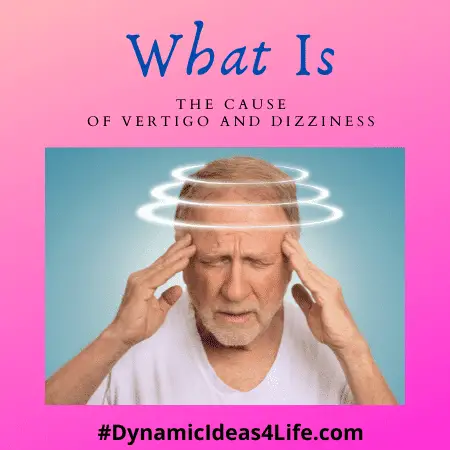
What Is the Cause of Vertigo and Dizziness?
Signs That You Could Have Vertigo…
- Dizziness is the most common symptom
- Feeling like you’re moving or spinning when you are completely stationary
- The trouble with focusing the eyes
- Hearing loss usually just in one ear
- Balance and coordination problems
- Ringing in the ears, similar to tinnitus
- Uncontrollable sweating
- Feeling nausea or physically being sick
- Difficulty when swallowing
- Weakness in the limbs
Most sufferers will not experience all of these problems. The majority will experience two or three of them. The 3 that affect me are dizziness, feeling like my head is spinning when stationary, and balance/ coordination issues.
Just before a bout of vertigo, I get a lot of pain in the soft tissue behind my ear lobes.
What Is the Cause of Vertigo and Dizziness?
What Causes Vertigo
There are 2 main types of vertigo – Central and Peripheral.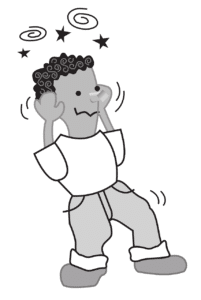
Central vertigo occurs when there is a problem within the brain, generally in the cerebellum.
Peripheral vertigo is mostly caused by a problem in the inner ear. Or within the vestibular nerve, which connects the inner ear and the brain.
This is the most common type which people usually have. Including myself.
Both causes can either be attributed to the inner ear or the brain. It is definitely a better-understood condition than tinnitus but still, it can be quite mysterious in nature.
But can Vertigo be a sign of something more serious? you may wonder.
Well, it is not out of the realm of possibility. In more serious cases vertigo can be caused by tumors to the nerves in your inner ear. It can also be due much the same as tinnitus to problems with your blood pressure. High BP especially can be a sign of several very serious conditions.
What Is the Cause of Vertigo and Dizziness?
What Triggers Vertigo Attacks
There are a number of underlying health issues that can cause vertigo;
Labyrinthitis
This disorder can happen when an infection causes inflammation to the inner ear labyrinth. Within this area is the vestibulocochlear nerve. This nerve sends signals to the brain about sound and motion.
Apart from the dizzy feeling with vertigo, a person with labyrinthitis can also have;
- Tinnitus,
- Headaches,
- Ear pain,
- Loss of hearing,
- Altered vision.
Vestibular Neuritis
An infection causes vestibular neuritis, which is inflammation of the vestibular nerve. The symptoms are very similar to labyrinthitis, except the hearing is not affected. Vestibular neuritis is another cause of vertigo that may cause blurry vision, extreme sickness, or a feeling of being off-balance.

Ménière’s disease
This disease causes a buildup of fluid in the inner ear, which can then lead to attacks of vertigo. Symptoms include ringing in the ears and hearing loss. It tends to be more common in people between 40 to 60 years old. Although it can unfortunately also occur in younger people.
This is one of the hardest to treat, and the symptoms usually last a few months in most cases.
The exact cause is unclear, but it’s believed it can be caused by the constriction of blood vessels. It may also be a viral infection or an autoimmune reaction. There is also a genetic factor that means that it could be hereditary.
Benign Paroxysmal Positional Vertigo (BPPV)
The inner ear contains structures called the otolith organs. These contain fluid and particles of crystals of calcium carbonate.
In BPPV, these crystals become dislodged and fall into the semicircular canals. There, each fallen crystal touches sensory hair cells within the cupula of the semicircular canals when you move.
As a result, the brain doesn’t receive the right information about a person’s position. This is when spinning and dizziness can occur. People typically experience periods of vertigo with this condition. They usually last less than 60 seconds, but feeling sick and other symptoms can also occur.
What Is the Cause of Vertigo and Dizziness?
How is Vertigo Diagnosed
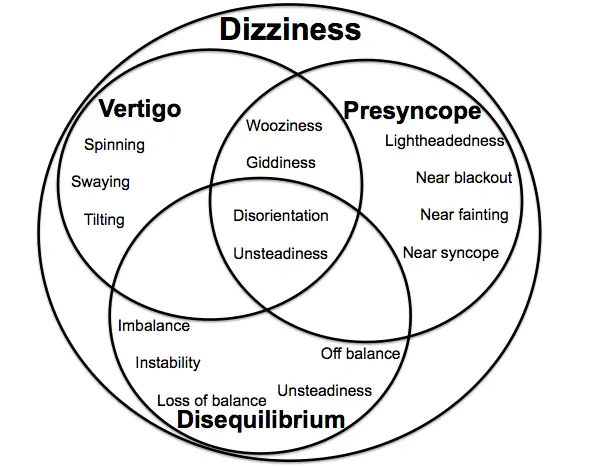 First of all, you will visit your doctor and try to describe your symptoms. This can be quite difficult to do. It can take a long time to get diagnosed exactly for this reason.
First of all, you will visit your doctor and try to describe your symptoms. This can be quite difficult to do. It can take a long time to get diagnosed exactly for this reason.
This may Involve many trips back and forth to the doctor; or to an ear, nose, or throat specialist.
A series of tests will be carried out starting with a physical examination. Then moving on some maneuvers involving moving your head and body around to see what’s causing your vertigo.
These are performed to determine if your vertigo is triggered by a problem Within the inner ear.
Others check your balance, by standing still with your eyes closed you will move involuntarily. Then your eye movements will be assessed to see what side of your body is most affected.
Imaging tests, such as computerized tomography (CT) scan or magnetic resonance imaging (MRI), can be used to let doctors see what’s going on inside your head. In the majority of cases, hearing, vision, and blood tests will also be carried out.
Treatment Options
Certain types of vertigo can go away on their own without any treatment. However, you may need treatment for other underlying medical problems if they are discovered. For this reason, it’s often difficult to tell ‘how long does vertigo last for?’
A doctor may prescribe you antibiotics for a bacterial ear infection. If this is found to be the cause. Likewise, other medications are available that can relieve the symptoms. Generally speaking. These drugs include antihistamines and anti-emetics to reduce the feelings of motion sickness and nausea.
Surgery may be necessary if other treatments are not effective. BPPV and acoustic neuroma are two conditions for which this may be necessary. Studies have shown that surgery is not a very effective or worthwhile option to consider.
Can Stress Cause Vertigo
Although many notice these symptoms whilst feeling stress or anxious this is not believed to be a direct cause. Although it can contribute to this condition by causing interference with your vestibular system. This usually gives you a feeling of being off-balance which may seem very similar to having vertigo.
What Helps Vertigo and Dizziness Go Away
Other than getting actual treatment there are a few vertigo exercises you can try.
- Lye down still in a dark quiet room with no outside disturbances. See if the spinning subdues.
- Sit down straight away if you are feeling dizzy
- If necessary try using a walking stick if it affects you whilst your out.
- Switch the lights on if you are awake to see how you respond.
- Try to move your head carefully and slowly whilst carrying out day-to-day activities
How To Cure Vertigo Permanently?
This Ironically is a question people do ask. The answer is you can never guarantee that if you recover from vertigo you won’t get it again. Although it is treatable and can be put into remission. If you can correctly identify the cause and seek the right kind of treatment you can make it go away. It is just that it is always possible that it can resurface. Or can be caused at a later point by something else.
My Final Thoughts
As a sufferer of vertigo even I have learned a lot from researching and writing this article. It’s thought that many thousands of vertigo sufferers around the world are still yet to be diagnosed. There are over 69 million sufferers in the USA alone.
As you can see this is a huge problem. When you suffer an attack it feels like your head is spinning, another way of describing it effectively is if you have ever been on a cruise ship and when you get off it feels like you are still on it.
You get this feeling even when you are lying down. So definitely not a pleasant thing to have. If you haven’t spoken to a doctor about this already please make sure you do.
YOUR FEEDBACK
Thank you very much for reading this article. If, you have a question or would like to leave a comment you can do so below. If, you know anyone else who would appreciate this then please feel free to share it.
I love hearing from you and I will always get back to you. Also, if you would like to be notified when new posts are published be sure to leave your email address in one of the subscribe forms.
Many thanks and…
Take great care of yourself because you are worth it ❤
Alex C
*Please note: I am not the original author of this post. It was originally published on another website called healthymindhealthypeople.com by Lisa S.
This article is intended as advice only. It’s not to replace medical advice. You should always speak to your doctor if you are concerned about any medical condition.






Anxiety and Depression BiOptimizers blood pressure supplements blood sugar control blood sugar support supplements cognitive function digestive enzymes Digestive Enzymes Supplement digital products Dr Sam Robbins Gut Health Gut Health While Travelling Health Tips for Travelling Healthy Living heart health HFL how to lower blood sugar levels How To Lower Cholesterol insulin resistance joint health supplement Keto keto dieting Keto Diet Weight Loss leaky gut supplements leptin resistance Magnesium deficiency Matt Gallant mental health multivitamins Nootopia Nootropics Probiotics Probiotic Supplements reverse type 2 diabetes stress and anxiety stress relief Supplements vitabalance vitapost Wade Lightheart weight loss articles weight loss diet plans weight loss product reviews weight loss supplements weight loss tea

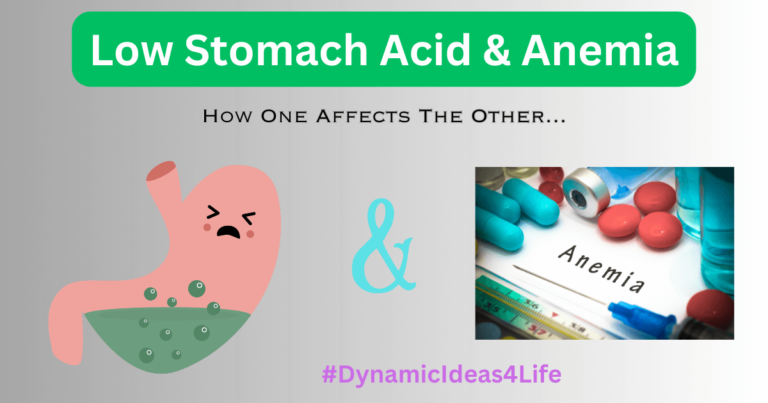
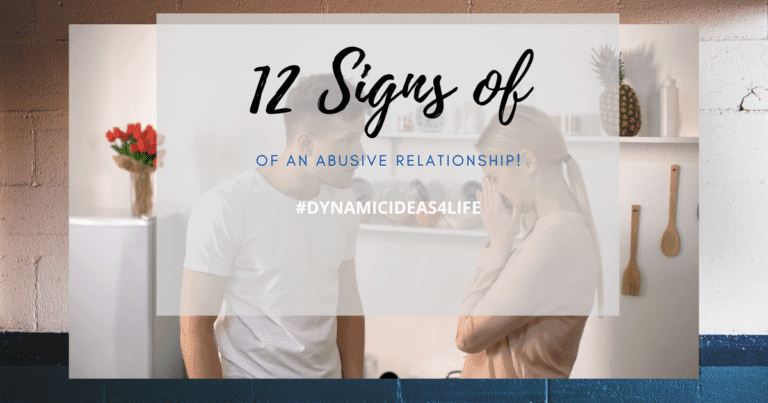



Any form of sickness is just terrible and this one is no exception. I am particularly touched when you mention that it takes a lot of visits to the doctors back and forth and a lot tests to get diagnosed. That must cost a ton of money. Hope you had medical insurance. Thats when you realise the importance of medical insurance. From your research I think a lot of people are suffering in silence without being diagnosed. I hope and pray you get better. Thank you for shedding some light on this disease.
Hey, thanks a lot for stopping by. Where I live we don’t pay to go to the doctor, and don’t need medical insurance. It’s all part of working and paying into the system.
Hi Lisa,
Until I read your article I did not know what Vertigo was. Also the two types of Vertigo. I see it can cause a lot of problems as you have outlined in your article. That is 10 too many problems to be living with. In outlining the conditions that can lead to Vertigo, I hope there are some prevention methods. I am sure knowing the five symptoms that can lead to Vertigo is an essential read. Being diagnosed with this disease seems to take too much time, and rather extensive. Sixty nine million people suffering from this just in America is a lot. I do hope more research is done as far as diagnosing and treating Vertigo.
Wishing you all the best,
Michael
Hi Michael,
69 million in America alone is a staggering number. I was shocked at it. Thank you very much for reading and leaving a comment. I appreciate your thoughts.
Lisa
Hello there, I have encountered a few cases of vertigo and almost all of them were usually caused by inner ear infections or other diseases of the ear. Sometimes it might cause vomiting and nausea…thanks a lot for sharing this awesome article i know it would be of help to a lot of persons.
I appreciate you taking the time to comment thank you.
Regards
Lisa
Hello there! this is an amazing review you have got here. I am sure the information in this post will be of great help to anyone who come across it. In my opinion,Vertigo is commonly caused by a problem with the way balance works in the inner ear, although it can also be caused by problems in certain parts of the brain.
Thanks!
Thank you very much for commenting
Lisa,
This is a great article on vertigo. I have never been diagnosed, but after reading your article I think I have experienced similar symptoms. I will ask my doctor about it the next time I see her.
Thank you for sharing this information with the world.
I have had vertigo since 2000. It came on suddenly and has lasted on and off until 2011. Then in 2011 it came on more severly. I have seen many neurologists, ent’s and have more tests than I care to remember. One diagnoses was menieres, then vertigo and the last one was migraine inducing vertigo. I do not have a headache, light sensitivity or an aura, and it seems to be with me all the time. So I am not convinced I have a constant migraine. So, yes, I agree it is extremely difficult to diagnose. Your article was very thorough, but unfortunately it didn’t tell me anything new. I feel so bad for those who get vertigo because it can be debilitating. But life goes on and eventually you do learn to live with it.
Thank you for your article. The one thing I didn’t know, however, was how many Americans are afflicted with this! How terrible. Hopefully they’ll find some relief.
Nina
Thanks for your input Nina, I love responses like this because it lets me know there is a bit more I can add to this information. I’m sorry I wasn’t able to help but I will give this a comb through and see if there is anything new I might be able to add which might be able to help others like yourself a bit better.